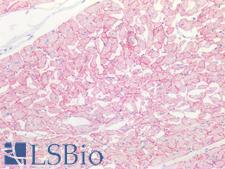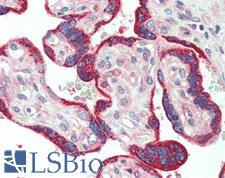Login
Registration enables users to use special features of this website, such as past
order histories, retained contact details for faster checkout, review submissions, and special promotions.
order histories, retained contact details for faster checkout, review submissions, and special promotions.
Forgot password?
Registration enables users to use special features of this website, such as past
order histories, retained contact details for faster checkout, review submissions, and special promotions.
order histories, retained contact details for faster checkout, review submissions, and special promotions.
Quick Order
Products
Antibodies
ELISA and Assay Kits
Research Areas
Infectious Disease
Resources
Purchasing
Reference Material
Contact Us
Location
Corporate Headquarters
Vector Laboratories, Inc.
6737 Mowry Ave
Newark, CA 94560
United States
Telephone Numbers
Customer Service: (800) 227-6666 / (650) 697-3600
Contact Us
Additional Contact Details
Login
Registration enables users to use special features of this website, such as past
order histories, retained contact details for faster checkout, review submissions, and special promotions.
order histories, retained contact details for faster checkout, review submissions, and special promotions.
Forgot password?
Registration enables users to use special features of this website, such as past
order histories, retained contact details for faster checkout, review submissions, and special promotions.
order histories, retained contact details for faster checkout, review submissions, and special promotions.
Quick Order
PathPlusTM ROS1 / ROS Antibodies
ROS1 is a receptor tyrosine kinase (RTK) involved in epithelial cell differentiation and regionalization of the proximal epididymal epithelium. It activates downstream signaling pathways related to differentiation, proliferation, growth and survival such as the PI3 kinase-mTOR signaling pathway. ROS1 mediates the phosphorylation of PTPN11, an activator of this pathway. It phosphorylates and activates the transcription factor STAT3 to control anchorage-independent cell growth. Furthermore, ROS1 mediates the phosphorylation and the activation of VAV3, a guanine nucleotide exchange factor regulating cell morphology. Some lung adenocarcinomas, glioblastomas, ovarian carcinomas and other cancers express ROS1 fusion proteins that result from genomic rearrangements, and they can sometimes be treated successfully with inhibition therapies. In immunohistochemistry, ROS1 has membranous positivity in the brain, lung, and epididymis.
References: The UniProt Consortium. Nucleic Acids Res. 47: D506-515 (2019); Nucleic Acids Res. 2016 Jan 4;44(D1):D733-45, PMID:26553804; Clinical Cancer Research. 19 (15): 4040–5, PMID: 23719267;
2 PathPlusTM Antibodies


☰ Filters
Products
Antibodies
(2)
Type
Primary
(2)
Target
ROS1 / ROS
(2)
Reactivity
Human
(1)
Rat
(1)
Application
IHC-P
(2)
WB
(2)
Host
rabbit
(2)
Product Group
PathPlus Cancer
(2)
PathPlus Cancer Pathology
(2)
Clonality
polyclonal pc
(2)
Format
Unconjugated
(2)
Epitope
aa1744-1777
(1)
aa1937-2210
(1)
Publications
No
(2)

Cancer Pathology
Cancer
ROS1 / ROS Rabbit anti-Rat Polyclonal (aa1937-2210) Antibody
Rat
IHC-P, WB
Unconjugated
50 µl/$375

Cancer Pathology
Cancer
ROS1 / ROS Rabbit anti-Human Polyclonal (aa1744-1777) Antibody
Human
IHC-P, WB
Unconjugated
200 µl/$375
Viewing 1-2
of 2
product results











